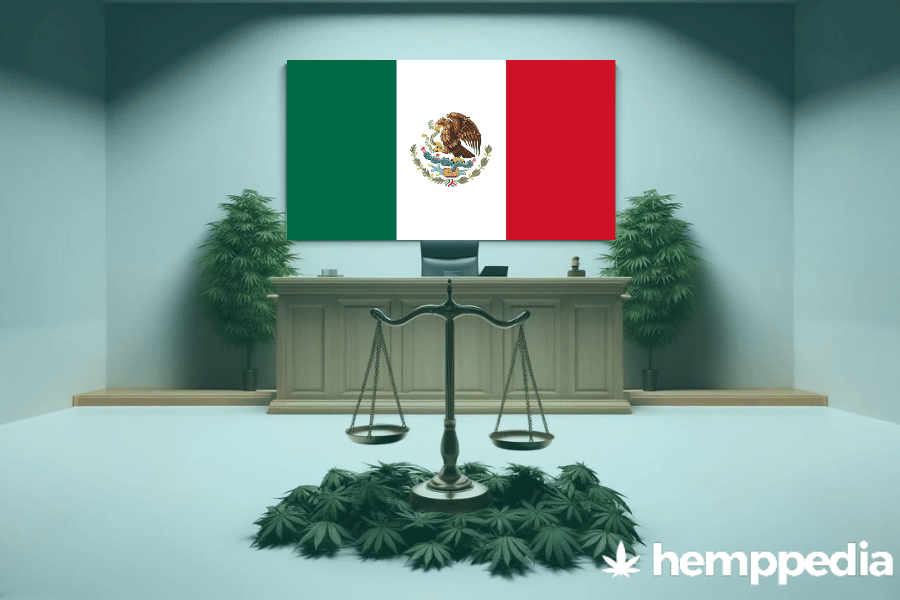With the global trend toward regulating cannabis products, questions about the legality of CBD are being raised in various parts of the world. In Mexico, the situation is complex and continuously shifting. This blog post provides a comprehensive guide to the current legal situation of CBD in Mexico, exploring its history, current status and future projections.
TL;DR
As of 2021, the use and possession of CBD with less than 1% THC content is legal in Mexico, following a legislative overhaul in 2017 which decriminalised the medical use of cannabis. This change in law positions it differently in relation to products containing THC. To provide some context, here is a brief summary of key legal aspects:
- Usage: Legal for medical purposes
- Possession: Legal up to a certain quantity
- Production: Legal for licensed producers
- Important distinction: Products containing more than 1% THC remain illegal
Overview of CBD Legislation
As part of cannabis regulations, CBD (Cannabidiol) – a non-psychoactive substance derived from hemp – is distinguished from THC (Tetrahydrocannabinol), a compound known for inducing the “high” associated with marijuana. Both hemp and marijuana come from the cannabis sativa plant, but CBD derived from hemp generally has lower levels of THC.
Mexico, like many countries, legalized hemp-based CBD products with less than 1% THC content in 2017, creating a distinction between CBD and THC-rich marijuana.
The Cofepris (Federal Commission for the Protection against Sanitary Risk) is the regulatory body overseeing CBD products, ensuring safety and purity in manufacturing and distribution.
Historical Context
Prior to 2017, all forms of cannabis, including CBD, were illegal in Mexico. The law changed after a widespread dialogue about its potential medical benefits. The 2017 changes recognized the therapeutic uses of cannabis, allowing CBD products for medical use.
Possession, Use, Cultivation and Sales
Current regulations allow personal use and possession of cannabis products, including CBD, as long as the THC content is below 1%. Sale of CBD products is allowed under licensed retailers, and approved medical patients can access them through prescribed means. Regarding cultivation, hemp can be legally grown for CBD production by licensed producers.
Enforcement and Penalties
Non-compliance with CBD regulations in Mexico can lead to penalties ranging from fines to criminal charges, depending on the nature of the offense. Enforcement actions have so far tended to focus on irregularities in production and distribution, rather than individual possession and use.
Comparative Analysis
Comparatively, Mexico’s approach to CBD regulation aligns with a growing number of countries acknowledging the medical benefits of CBD. However, its THC limit is more stringent than countries like the U.S. where the legal limit is 0.3%.
Conclusion
In conclusion, while the legalisation of CBD in Mexico reflects a global trend towards cannabis regulation, it remains subject to strict controls, particularly in relation to THC content. It will be interesting to observe how Mexico’s CBD laws evolve in response to global changes and ongoing research into the therapeutic uses of CBD.





